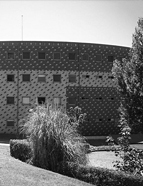

Between 1999 and 2007, nine members of the so-called senior generation retired. In 2001, as we have seen, the curriculum for the degree course adopted a semester regime. And in the last of the years mentioned, the Bologna regime came into force. What evaluation can be made, as we enter the second decade of the 21st century and celebrate 50 years of Clio at the UP? It is difficult to be optimistic in this last quarter of 2011. But in the midst of all that has been happening in Portugal and in the world, the current DHEPI, from the 90s to the present, has managed to overcome situations that have not been easy, ranging from a clearly hostile Rector (Alberto Amaral by name, chemistry professor at the FC/UP, in office from 1985 to 1998), to an absurd reduction of the «numerus clausus» in the first half of the 90s, by the grace of minister Roberto Carneiro (in office from 1987 to 1991), to the subsequent ill-will of another minister by the name of Fernando Couto dos Santos, as well as of a secretary of state for higher education called Pedro Lynce de Faria (1992-1993), to the fundamentalisms with which the later minister José Mariano Rebelo Pires Gago (2006-2011) brought the Bolognese reform into force... The current DHEPI has survived, managing to keep the "numerus clausus" of 80-90 students in the degree course for several years and to bring together on a national scale the largest group of History scholars (1st, 2nd and 3rd cycles) - just as in the 80s and 90s it boasted the largest national contingent of Clio PhDs. And in 2011 it jubilantly celebrates its 50th Anniversary, paying tribute - although not only - to the memory of the oldest historians of the UP (the old schoolers had allowed them to fall into oblivion ...), whose birth centenaries have recently been celebrated: Bernardo Xavier Coutinho, António Cruz, Rafael Ávila de Azevedo, José António Ferreira de Almeida... Worthily.
